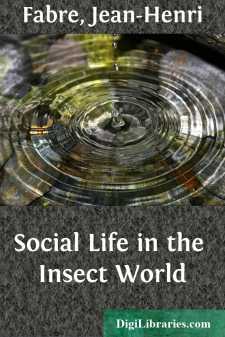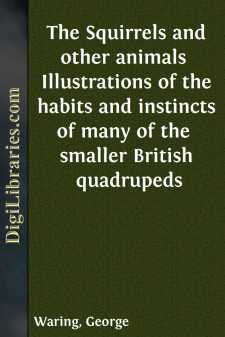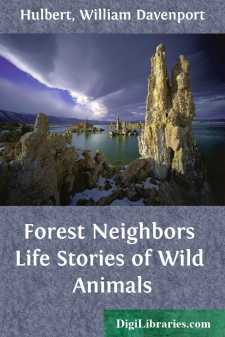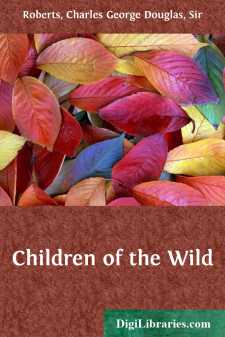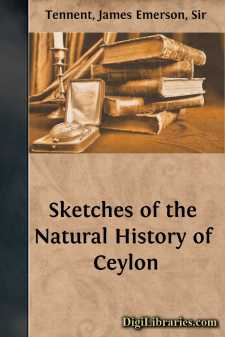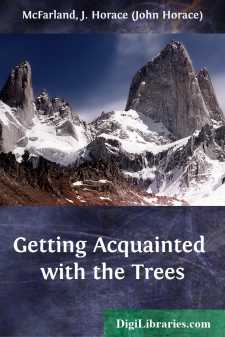Nature
Nature Books
Sort by:
by:
Jean-Henri Fabre
CHAPTER I THE FABLE OF THE CIGALE AND THE ANT Fame is the daughter of Legend. In the world of creatures, as in the world of men, the story precedes and outlives history. There are many instances of the fact that if an insect attract our attention for this reason or that, it is given a place in those legends of the people whose last care is truth. For example, who is there that does not, at least by...
more...
by:
George Waring
CHAPTER I. "Bless me, I do believe I have been asleep!" said a squirrel, one fine morning in early spring, when the delicious warmth of the sun had reached him in his winter retreat, and roused the lazy little fellow from a two months' nap. The truth is, that he and his family had fallen asleep at the first setting in of the cold weather, and had passed the dismal winter in a state of...
more...
by:
Royal Dixon
FOREWORD "And in the lion or the frog—In all the life of moor or fen—In ass and peacock, stork and dog,He read similitudes of men." More and more science is being taught in a new way. More and more men are beginning to discard the lumber of the brain's workshop to get at real facts, real conclusions. Laboratories, experiments, tables, classifications are all very vital and all very...
more...
INTRODUCTION Somethirty years ago, while out on one of his landlooking trips in the woods of Northern Michigan, my father came upon a little lake which seemed to him the loveliest that he had ever seen, though he had visited many in the course of his explorations. The wild ponds are very apt to be shallow and muddy, with low, marshy shores; but this one was deep and clear, and its high banks were...
more...
CHAPTER I THE LITTLE FURRY ONES THAT SLIDE DOWN HILL In the brown, balsam-smelling log cabin on the shores of Silverwater, loveliest and loneliest of wilderness lakes, the Babe's great thirst for information seemed in a fair way to be satisfied. Young as he was, and city-born, the lure of the wild had nevertheless already caught him, and the information that he thirsted for so insatiably was all...
more...
Introduction.—The occasion for publishing this catalogue of Philippine earthquakes which were of violent and destructive character has been furnished by a request from Prof. John Milne for a list of such phenomena, to be included in the General Earthquake Catalogue which this eminent seismologist is preparing under the auspices of the British Association for the Advancement of Science. The said...
more...
INTRODUCTION. A considerable portion of the contents of the present volume formed the zoological section of a much more comprehensive work recently published, on the history and present condition of Ceylon. But its inclusion there was a matter of difficulty; for to have altogether omitted the chapters on Natural History would have impaired the completeness of the plan on which I had attempted to...
more...
by:
John Burroughs
SQUIRRELS Walking through the early October woods one day, I came upon a place where the ground was thickly strewn with very large unopened chestnut burrs. On examination I found that every burr had been cut square off with about an inch of the stem adhering, and not one had been left on the tree. It was not accident, then, but design. Whose design? A squirrel’s. The fruit was the finest I had ever...
more...
by:
William Harvey
Preface. I have been called upon to write illustrative sketches to a series of engravings, designed by an eminent artist. In performing my part of the work I have thrown the Mammalia into twenty-four groups—corresponding more or less to the picture designs—and have dwelt chiefly on the geographical distribution of the animals. The Cetaceae and Vespertilionidae are properly omitted. In the groups...
more...
A Story of Some Maples This is not a botanical disquisition; it is not a complete account of all the members of the important tree family of maples. I am not a botanist, nor a true scientific observer, but only a plain tree-lover, and I have been watching some trees bloom and bud and grow and fruit for a few years, using a camera now and then to record what I see—and much more than I see, usually! In...
more...


